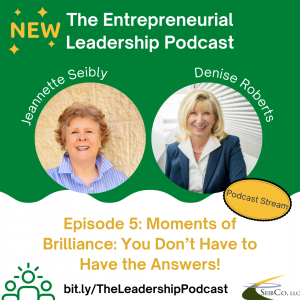
If we want people to talk to us more, we should start by listening to them more. Simon Sinek
- Would you like to achieve epic results?
- Have working relationships with team members that develop them to be leaders?
- Keep reading!
When we’re in meetings or conversations, and someone else is talking, we often allow ourselves to think of other things. The problem? We stop listening. We miss what the other person said. We also miss nuances that make a big difference in the person’s meaning, even if they didn’t say it.
In my recent article, Are Your Relationships Working?, I mentioned “Be Present” as a key to building relationships. I don’t know about you, but I don’t feel a positive affinity when someone is unable or unwilling to listen to what I have to say. Also, as an excellent listener, I am always amazed by others who fail to hear due to bad habits or an unwillingness to be present.
So, what are the critical tips for “being present” during conversations? How does being present impact retention (aka relationships), revenues, and results? Keep reading!
5 Key Tips to Be Present When Listening
Be Focused. When entirely focused on the person speaking, what you learn and hear, and the solutions that can evolve are incredible. It’s true. Just listening and setting aside internal mental chatter makes the person feel valued and respected (aka retention).
Stop Multi-tasking. When listening, set aside your work, negative feelings, and other distractions (e.g., social media posts, gadgets, email notifications). That will allow you to hear the genuine concerns you will otherwise miss (think, customer and employee satisfaction).
Stay Mentally Focused. Instead of allowing yourself to think of rebuttals or allowing yourself to be triggered by what they’ve said, be present and listen. Yes, I understand; this is easier said than done. However, successful leaders learn not to be offended and address issues at the appropriate time.
Set Aside Answers. Too often, when we listen, we listen to develop a solution or answer the person … even when they don’t ask a question! Instead, be present and listen. Don’t offer ideas. Listen to just listen. Be a facilitator and guide the person to brainstorm, allowing them to develop their own answers.
Ask Questions. When you are present, you can ask questions that ensure you understand what is being said. Being present and listening will allow you to inquire into gaps in their thinking or contradictions. Use facts, not feelings, when asking questions (feelings are fleeting and usually don’t reflect the speaker’s words spoken at that moment).
©Jeannette Seibly 2023 All Rights Reserved
 Jeannette Seibly is The Leadership Results Coach. She’s celebrating 30 years as an award-winning international executive consultant, speaker, and business author. Her clients value the listening and positive difference she brings to any conversation. As a result, they can work through sticky situations and challenging relationships to become positive influencers. Contact Jeannette for a confidential discussion. PS: She’s also a three-time Amazon Best-Selling Author!
Jeannette Seibly is The Leadership Results Coach. She’s celebrating 30 years as an award-winning international executive consultant, speaker, and business author. Her clients value the listening and positive difference she brings to any conversation. As a result, they can work through sticky situations and challenging relationships to become positive influencers. Contact Jeannette for a confidential discussion. PS: She’s also a three-time Amazon Best-Selling Author!
A note from Jeannette about being present when listening: It can be challenging to listen when someone is long-winded, or you have no interest in what s/he is saying. The problem? As a leader, not listening hurts your retention (aka relationships), revenues, and results. And being present and listening can make a big difference in what you hear. It allows you to reduce misinterpretations and hurt feelings. Contact me if you’re unclear about how to be present, especially when you don’t want to listen.
 This week’s PODCAST: Listen to the Moments of Brilliance: You Don’t Have to Have the Answers! with my guest, Denise Roberts, on The Entrepreneurial Leader.
This week’s PODCAST: Listen to the Moments of Brilliance: You Don’t Have to Have the Answers! with my guest, Denise Roberts, on The Entrepreneurial Leader.
